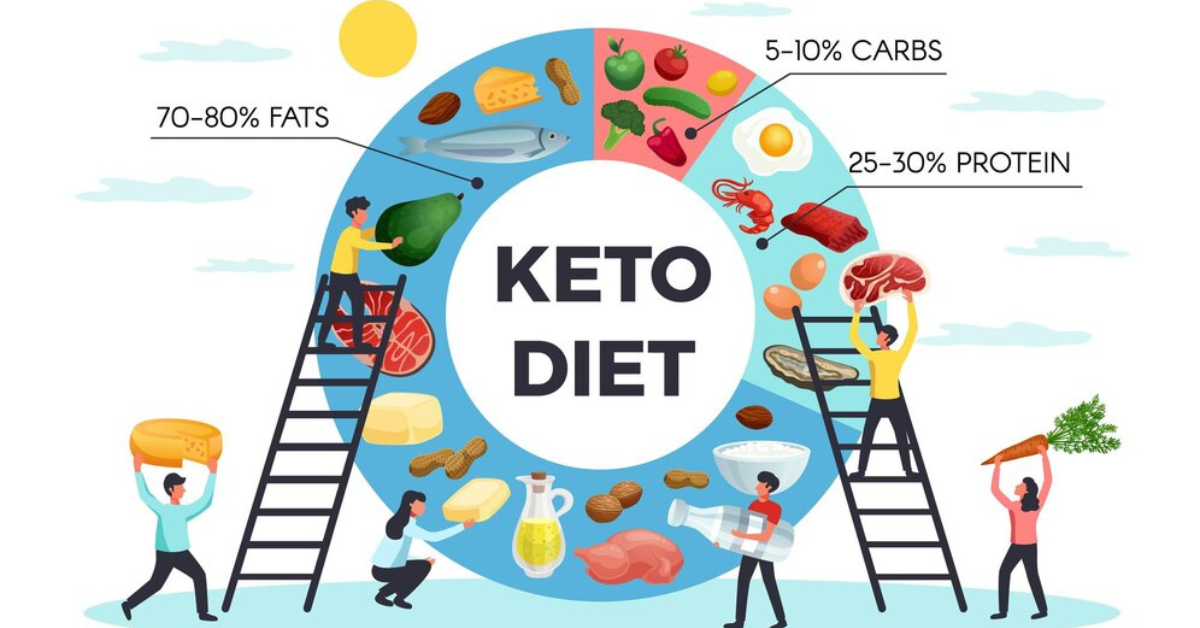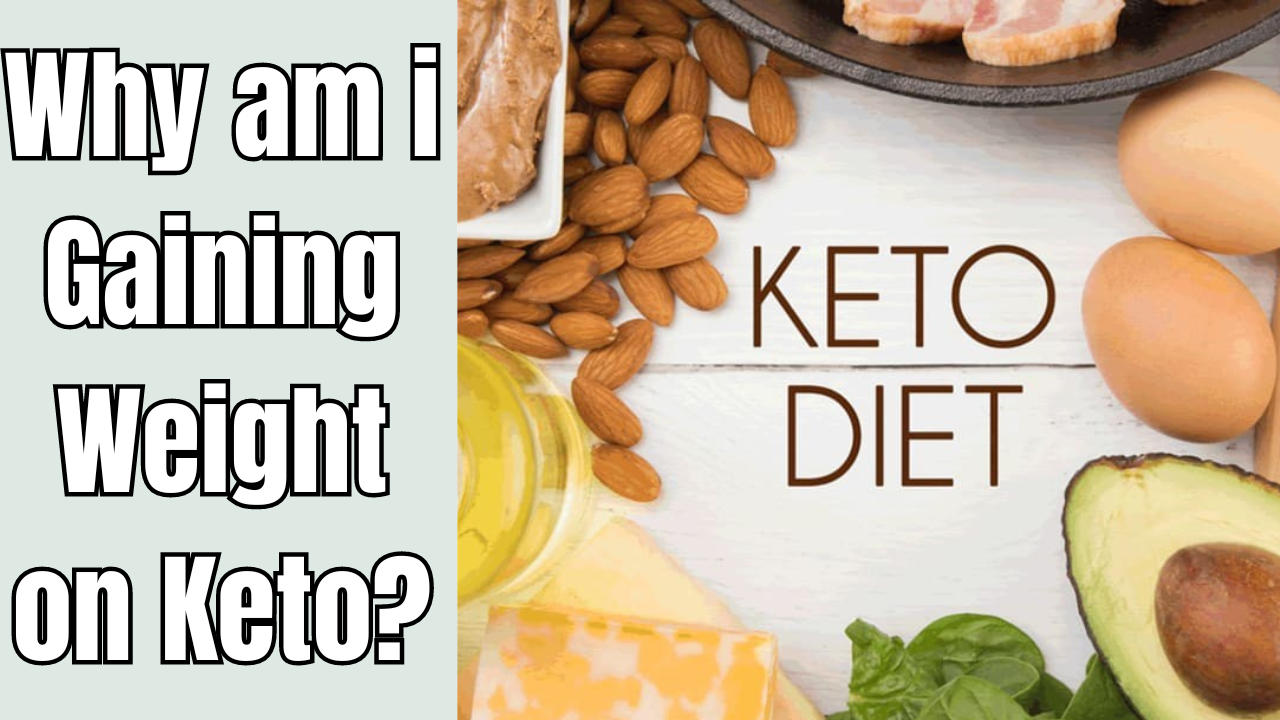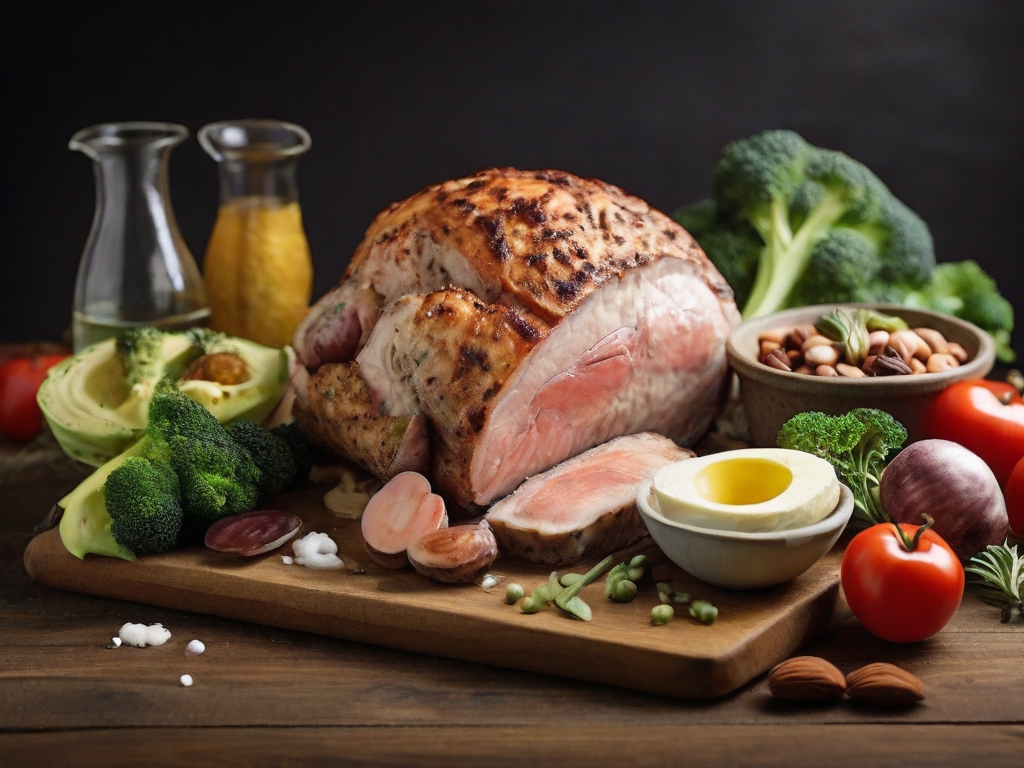Is the Keto Diet Plan For Fat Loss Through Intermittent Fasting a good choice for you? Are you overweight or diabetic? Currently, doing the keto diet? Do you have serious health conditions related to obesity? Or are you simply looking for a way to maintain your body and stay energized?
If you answered yes to any of these questions, then intermittent fasting could be just what you need!
Take the information in this article and try to plan out a schedule that works with your lifestyle. No matter what schedule you choose, if you fast the right way, you are sure to experience countless health benefits! First, let’s jump in and cover the basics.
Table of Contents
ToggleWhat is intermittent fasting?
Intermittent fasting has a long and interesting history among mankind and means different things to different people.
To fully understand what it is, let’s first explore…
What fasting does NOT mean
The definition of fasting is “a voluntary abstinence from, or limiting of, food.” There are many reasons why people choose to fast – health reasons, spiritual reasons, or even as a rebellion against politics.
Whatever reason someone has for fasting, a basic truth remains the same: fasting does not equal starvation.
There are records of people fasting all throughout our recorded human history, and this shows that fasting is instinctual to a certain extent. Our bodies are specially designed to stockpile energy at every given opportunity, and then to disperse that energy in times of deficiency.
Believers of fasting
Many influential people throughout history have promoted the practice of fasting. These individuals include Hippocrates, the father of modern medicine; Benjamin Franklin, widely regarded as one of the smartest men of all time; and Mahatma Gandhi, revered the world over for his non-violent social activism.
Fasting is also a common practice in many religions, such as Christianity, Islam, and Buddhism. Followers of these religions believe that fasting is a method of obtaining a closer relationship with God and purifying your mind and body.
Advantages of fasting
Physically speaking, the benefits of fasting are outstanding. People who practice fasting can expect to see improvements in weight loss, reduced insulin resistance, heart and liver diseases, and cancer, as well as decreased levels of inflammation.
Haters of fasting
Seeing all of the wonderful benefits of fasting, it may be difficult to imagine who could be against the idea. Just stop and think about it for a moment – would large corporations such as Nestle, Kellogg’s, Kraft, or McDonald’s want you to stop eating for extended periods of time? Of course not! But the choice about who to trust with your health is yours. Will it be Jesus Christ or Colonel Sanders? Mohammed or Ronald McDonald? Ghandi or the Pillsbury Doughboy? Licensed nutritionists or Mrs. Butterworth?
How To Burn Fat Efficiently
Physical effects of eating
When you begin eating, the insulin levels in your body will start to rise.
This allows your liver, fat, and muscles to absorb the new sugar found in your blood. This sugar is then stored as a source of energy for future use when your insulin levels fall as a result of not eating.
How our bodies utilize sugar vs. fat
Sugar and fat are the two main sources of energy in your body, but they are used and processed very differently. Sugar can only be stored in small quantities, and it is very easy for your body to use it as a source of energy and it is easily replenished.
However, fat is quite the opposite! There is an unlimited amount of storage available in your body for fat cells, but it is not easy to access those fat cells as a source of energy.
Fat is only accessible for your body to burn after it has already burned all of the stored sugar.
Physical effects of fasting
For the first 24 hours of your fast, your body will be deriving most of its energy from your sugar stores. After those 24 hours are up, the amount of usable sugar remaining will be minuscule, if anything.
Also read: List of Fat-Burning Food
This is the point when your body will begin utilizing your fat stores as energy. As soon as your body has burned through all of the available sugar, that is when it will start burning through fat.
How to fast – What choices do you have?
The types of people who shouldn’t fast
If you are a pregnant or nursing mother, you should not fast. Period. Developing fetuses and children have very demanding nutritional needs that would not be satisfied if their mothers were fasting. For the same reason, children should not be put on a diet of fasting.
Fasting daily
Daily fasting is a very common method. If, for example, you eat breakfast at 7:00 a.m. and you eat dinner at 7:00 p.m., then you will have 12 hours of fasting between the hours of 7:00 p.m. – 7:00 a.m.
To expand that fast, you may choose to have a 16-hour fast. You could have your first meal at 11:00 a.m., and your last meal at 7:00 p.m. This allows you to eat for 8 hours of the day while maintaining a fast for 16 hours of the day.
The Warrior Diet
To expand it even further, you may have a 20-hour fast. This allows you to have one or two meals during 4 hours of the day, followed by 20 hours of fasting. The book ‘The Warrior Diet’ popularized this fasting method, hence its common name of the Warrior Diet.
Also read: Caveman Diet and Warrior Diet: A Primal Approach to Intermittent Fasting
Other fasting methods
The 5:2 diet allows you to have five days per week set aside as normal eating days, while two days per week you are restricted to consuming only 500-600 calories per day. While the 5:2 diet is technically not an actual fast, it can still provide many of the same advantages as conventional fasting.
Another method is alternate daily fasting. This is a 36-hour fast that allows, for example, dinner on day 1 and then no food at all until breakfast on day 3. The 7-day fast is also popular, and is often called a “cleanse”. This method is usually accompanied by some type of liquid supplement that is designed to purify your body.
Drink options while fasting
Of course, the most important beverage to have on hand while fasting is water. Whether it is still or sparkling, naturally flavored or plain, water is crucial to a healthy body. Tea is also a great choice of beverage when fasting. All types of tea are encouraged, and you can feel free to enjoy them hot or iced.
Yet another option is coffee. Some people choose to add a small amount of cream to their coffee during a fast. While this technically breaks the fast, the difference it makes is very small and it does help many people to stay on track with not consuming any food. One last drink you can choose is clear broth. You can make these broths with vegetables, meats, or even bones, and you can flavor them with spices, salt, pepper, or ginger.
Also read: Not Losing Weight On the Low Carb Diet? Here’s Why!
What to do when it’s time to break your fast
Especially for fasts that last a longer period of time, it is recommended to break them gently. One way to do this is by eating a small snack or a light salad, then waiting around thirty minutes before eating your meal. If you choose to eat a large meal immediately after breaking a fast, be prepared to experience stomachaches and discomfort!
7 Benefits Of Keto Diet Plan For Fat Loss Through Intermittent Fasting
On top of the previously mentioned advantages to fasting, here are seven more benefits to consider if you are still on the fence about taking the plunge into this diet choice.
1. You can add a pattern of fasting to any existing diet
If you don’t eat meat, or you don’t eat dairy, or you have a wheat allergy or any number of other dietary restrictions, don’t worry! Fasting does not change what you eat in any way. Whatever your current diet is, you can continue eating the same foods and still implement a pattern of fasting in your schedule.
2. Fasting is flexible
No matter where you are, what time it is, or what foods you do or do not have access to, fasting is something you can do. It is an all-natural solution to many of the problems that overweight people face.
3. Fasting is powerful
In many of the fad diets popular today, there are extreme limits to the types of food you are allowed to have. Many of those diets are simply ineffective. However, fasting is supremely powerful – how can you eat less than zero?
4. Fasting is intermittent
Again, many fad diets place you under a great deal of restrictions as to what foods you can and cannot eat. As long as you are on the diet, these restrictions are not lifted.
Fasting, on the other hand, is intermittent. This is crucial because a continuous diet is not sustainable. Especially on special occasions, you will want to be able to enjoy some cake, alcohol, or Superbowl snacks without feeling guilty. Who wants to celebrate their retirement with a big plate of broccoli, or a friend’s wedding with a measly cup of tea? This is not an issue with fasting, because you know that after your cheat day, you can continue right on with your pattern of fasting.
5. Fasting is convenient
Some diets require you to cook three meals a day at home from scratch, leaving you with a heftier grocery bill, more clean-up time, and less time for your other responsibilities.
Fasting is the opposite of that! Of course, eating less will in turn reduce your food costs, as well as the amount of time you spend cooking and cleaning up the kitchen.
You will have a thicker wallet and more time to spend on other activities.
6. Fasting is cheap
Going along with benefit number five, fasting saves you money. Local organic food choices can break the bank very quickly and they can be difficult to obtain depending on where you live, so what do you do if your diet requires you to eat those kinds of foods for every meal, every day? Not to worry! Fasting is free, and it’s readily available to everybody.
7. Fasting is simple
These days, it seems like the more complicated a diet is, the more likely it is to become the next trend. Compare those diets to fasting, and you will quickly see which choice would be more easily implemented in your life! Fasting can be summed up in two simple sentences: Don’t eat. Stay hydrated.
Common Misconceptions About Fasting
Despite the large volume of readily available information we have today, many people view fasting as what it’s not: a torturous form of starvation.
That simply isn’t true, so we are here to put an end to some of the common misconceptions about fasting.
Misconception #1 – Fasting is unhealthy
As mentioned earlier, fasting has been a normal practice for countless centuries. Some fasting throughout history has been inadvertent, and some has been intentional.
For whatever reason people choose to fast, by now we would’ve seen and experienced any harmful side effects if they did exist. Remember, the benefits of fasting are impressive and the risks are few, if any.
Misconception #2 – Fasting causes low blood sugar
As we know, the body can store and produce its own sugar. So whether you eat sugar or you don’t eat sugar, your blood sugar levels will remain stable under normal circumstances. Unless you are taking medication for diabetes, you can expect to see no change in your blood sugar levels when you begin fasting.
Recommended reading: How Many Grams of Sugar Per Day?
Misconception #3 – Fasting causes malnutrition
The world record for the longest fast is 382 days. A 27-year-old man was under the care of researchers from a university in Scotland during his 382-day fast.
He supplemented himself with multivitamins, and by the end of his fast, he had gone from weighing 456 pounds to 180 pounds. He did not experience malnutrition.
Of course, while you fast there is caloric deprivation. This is really the purpose of fasting, so it’s nothing to worry about.
If you are fasting for shorter periods of time, such as daily or alternate daily fasting, you do not need to worry about getting all of your proper micronutrients. You can get them easily through food.
If you are fasting for longer periods of time, more than a week, feel free to take multivitamins to prevent any lack of micronutrients.
Misconception #4 – Fasting puts your body in “starvation mode”
“Starvation mode” is the implication that your body begins to shut down during a fasting period.
Perhaps your body would have trouble regulating its temperature, and you constantly feel tired and hungry. Then, when you do eat again, you will rapidly gain back all of the weight you lost during your fast.
This is simply not true. Studies have shown that contrary to popular ideas if fasting has any effect on your metabolism at all, it will actually be increased rather than decreased.
During a fast, your adrenaline levels rise and this causes your metabolism to keep working. After multiple days of fasting, you can even experience an increase of up to 12% in your metabolism.
As long as your body has fat to burn, there is no reason for it to start shutting down. Fat is stored for the specific purpose of providing energy during times of need, and this stored energy is just as effective as energy gained from food.
Misconception #5 – Fasting burns muscle
By now you know that your body stores sugar and fat for energy. First, it burns off the available sugar. Then, it burns off the available fat.
The point at which your body begins to burn muscle for energy is when your body fat percentage reaches 4% or lower. This is an extremely low number and unless you are a world-class marathon runner, it is highly unlikely that you will ever reach that point.
So if you are worried about fasting causing unhealthiness, low blood sugar, malnutrition, tiredness, or a loss of muscle mass – don’t be! There is no reason to expect any of these symptoms with fasting.
Breakfast – The most important meal of the day?
What is breakfast?
The meaning of ‘breakfast’ is literally “the meal that breaks your fast”. This can be any meal, at any time of the day. Do you really have to eat breakfast as soon as your feet hit the ground in the morning? Of course not! It is a myth that eating a large breakfast in the morning will provide us with energy throughout the rest of the day.
The Circadian Rhythms
Circadian rhythms are the patterns of physical and hormonal changes in your body that follow a daily cycle.
Right before you wake up in the morning, your body releases a shot of adrenaline, cortisol, and growth hormone. This sends a signal to your body that it needs to start pumping sugar into the blood to provide you with energy.
So, before you have eaten anything at all, your body is already prepared for the day and providing you with the energy you need to get your day started.
What effect does breakfast have on us?
Studies have not shown that eating breakfast prevents hunger later in the day. No matter if you eat breakfast or skip breakfast, chances are you will still choose to eat lunch.
Bad choices for breakfast
The worst part about breakfast is that we are usually in a hurry in the mornings. We rarely have time to sit down for a relaxed, wholesome breakfast. Hence, we end up reaching for the quick and easy convenience of foods that are chock full of processed grains and sugar.
So in conclusion, eating breakfast is not crucial to your health. Whether it’s sugary cereals, pastries, or “healthy” yogurt, the vast majority of people make bad choices when it comes to breakfast foods.
Breakfast is simply a means to break your fast, whether you eat it when you wake up, at noon, or at dinnertime. The timing is not important as long as you make healthy choices about what foods to eat.
When you first start fasting, headaches are a usual occurrence. This may be caused by a salt deficiency or dehydration.
These headaches tend to go away on their own, but you can help them along the way by staying well-hydrated and making sure your salt intake is at a normal level.
5 Tips to Successful Fasting
Tip #1 – Select a fasting pattern that best compliments your lifestyle
One of the greatest things about intermittent fasting is that it is so flexible. If you enjoy having dinner with your family every night, you don’t have to give that up. Simply adopt a fasting routine that fits your lifestyle!
Perhaps you could try a 20-hour fast, which allows you to eat dinner and even a late lunch if you wish to.
The options and combinations are endless when it comes to fasting, so take a few minutes to brainstorm how to fit it into your life in the least intrusive way.
Tip #2 – Avoid binging
Binge eating is the last thing you should do after completing a fast. You may be tempted to do just that, but remember to take it slowly and stick to foods that are high in nutrients.
Fasting is not an excuse to binge eat – a cycle of binge eating and fasting is not a healthy lifestyle.
Tip #3 – Take it slowly in the beginning
The first time you fast, it will undoubtedly be difficult for you. You will have to learn how to deal with common problems, such as hunger pangs or headaches.
Start slowly. Try a 12-hour fast first, then work up to 16 hours, 20 hours, 24 hours, and so on. This will allow your body some extra time to acclimate to the changes in your diet.
Tip #4 – Keep it a secret
The misconceptions about fasting run rampant in many communities, so it may be best for you to not broadcast to the world that you are fasting.
Why? Imagine you tell some acquaintances and they suddenly berate you for making such a decision, and spewing all of the false information they believe to be facts.
Would this be encouraging for you? Of course not! So until you are set in your ways of fasting and knowledgeable to stand up for yourself, it could be beneficial to not tell many people about it unless you know they will encourage you.
Tip #5 – Avoid laziness
One of the best ways to distract yourself from food is to keep busy. If you are at work, simply focus on the tasks you must accomplish and get them done!
When you don’t have to stop for a lunch break, you can accomplish much more in a smaller amount of time and perhaps even get to go home early.
If you do take a lunch break during your fast, be sure to avoid the snack tables or areas where you will be forced to see or smell food.
This could make it quite difficult to stick with your fast.
Conclusion
In summary, intermittent fasting, when combined with the Keto diet plan for fat loss, offers a versatile and effective strategy for those seeking better health and weight management. Fasting, often misunderstood as starvation, has a rich historical background, with numerous advantages including weight loss, improved insulin resistance, and better heart and liver health.
It is adaptable to various lifestyles and dietary preferences, cost-effective, and straightforward. Contrary to misconceptions, fasting doesn’t lead to low blood sugar, malnutrition, or muscle loss, and can even increase metabolism. The concept of breakfast being the most critical meal is debunked, emphasizing the importance of making healthy food choices when breaking a fast. By selecting the right fasting pattern, avoiding binge eating, easing into fasting, maintaining privacy about your fasting practice if needed, and staying active, you can successfully integrate intermittent fasting into your life to achieve your health and weight management goals alongside the Keto diet plan for fat loss.
Neha Pant








This Post Has One Comment
I am a 65 year old woman trying to lose 20 pounds. I have been doing the 16/8 fast
fora week…my weight has stayed exactly the same. I’m not sure if I’m eating enough.
I’m having about 800-900 cal./day and no carbs…. How many calories a day should I be eating?